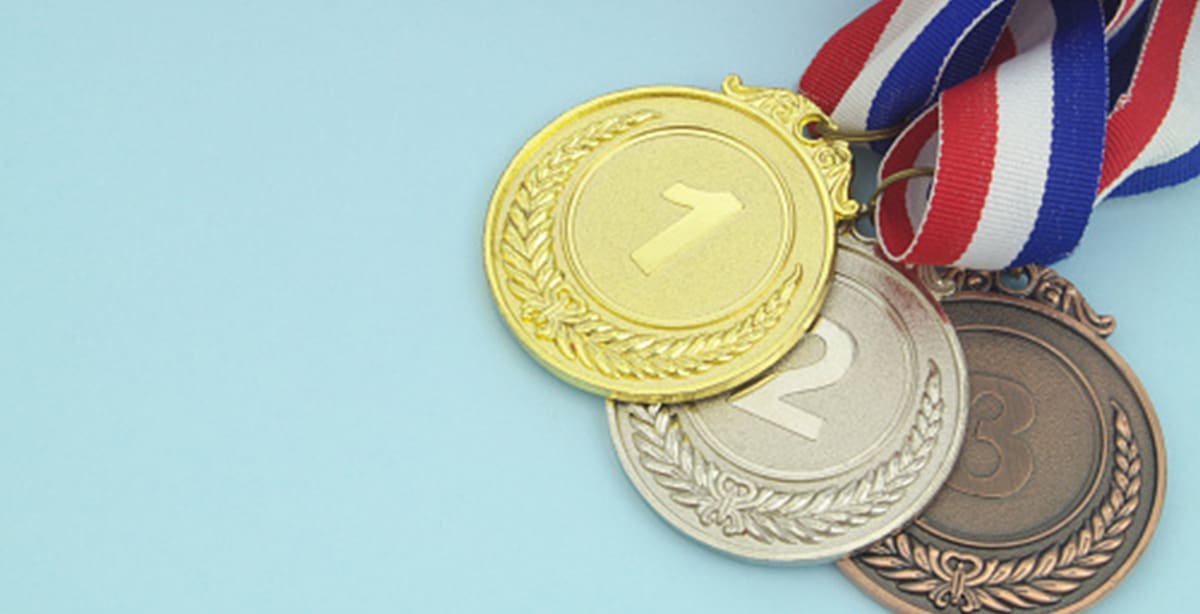After being postponed for nearly a year as a result of the global coronavirus pandemic, the 2020 Olympic Games are set to kick off this week, with the opening ceremonies being held in Tokyo, Japan, on Friday, July 23.
Here, we’ll take a look at the games from a marketing perspective, id
entifying some of the event’s top sponsors, along with a few trends being seen in sponsoring companies’ approach to marketing during the worldwide media spectacle. Read on for a few marketing-world insights and observations related to the 2020 Summer Olympics.
Worldwide Olympic Partners
When it comes to the games’ top official sponsors, most of the names on the list will be quite familiar to viewers the world over, while a few are heavy-hitters in their home countries looking to make a splash on the global stage. Here are the 15 members of the exclusive Olympic Partner Programme, each of whom commits to multi-year contracts with the International Olympic Committee (IOC) and pays a total of around $100 million to achieve the highest level of Olympic sponsorship:
- Airbnb — San Francisco-based company that provides an online marketplace for vacation rentals, primarily in property owners’ homes and vacation homes
- Alibaba Group — Chinese tech company that specializes in e-commerce, cloud computing, digital media and entertainment
- Allianz — German firm specializing in financial services and insurance
- Atos — French information technology (IT) and consulting firm
- Bridgestone — Japan-based manufacturer of auto and truck parts that is the world’s second-largest tire maker
- Coca-Cola — Atlanta-based soft drink manufacturer
- Dow Inc. — Michigan-based commodity chemical company
- General Electric — Boston-headquartered conglomerate with business segments devoted to aviation, healthcare, power, digital industry, additive manufacturing and more
- Intel — California-based technology company specializing in semiconductor chips and microprocessors
- Omega SA — Switzerland-based maker of luxury watches
- Panasonic — Japan-based manufacturer of consumer electronics
- Procter & Gamble — Cincinnati-based maker of consumer goods, most in the personal health, personal care and hygiene segments
- Samsung — South Korea-based producer of consumer electronics
- Toyota — Japan-based automotive manufacturer
- Visa — California-based financial services company specializing in credit cards, debit cards and prepaid cards
Supporting the games
According to the IOC, the members of the Olympic Partner Programme “provide the foundation for the staging of the Olympic Games and help athletes from over 200 nations participate on the world’s biggest sporting stage.” The IOC credits members of the program with providing support critical to presenting the games, including:
- Financial resources for the Olympic family
- Products, services, technology, expertise and staff needed to present the games
- Direct support of Olympic athlete training and development worldwide
- Global marketing campaigns promoting the games and Olympic values
- Essential services for participating athletes
- Activations to enhance the Olympic experience for spectators
The Olympic Partner Programme accounts for roughly 18% of the IOC’s revenues, with about 73% generated via broadcast rights.
A conspicuous absence
One extremely familiar face that is not an official sponsor of the Olympic Games this year is McDonald’s. The worldwide fast-food company’s decision to take a pass on official sponsorship in 2021 raises eyebrows because the food & beverage powerhouse has been a regular Olympics sponsor for over 40 years — since 1976 — and began its involvement with the Olympic Games even earlier, in 1968. That’s when, after hearing reports that U.S athletes participating in the Winter Olympics in the alpine resort of Grenoble, France, were missing their favorite American foods, McDonald’s had its famous hamburgers flown in to satisfy their all-American cravings.
2021’s top spenders
While members of the Olympic Partner Programme are the highest-level official sponsors of the Olympic Games, they’re not all necessarily the top spenders for the Tokyo Summer Games. One of the five top-spending companies is Google, an Official Supporter of the games, which represents the fourth tier of sponsorship levels. According to MediaRadar, the top five spending sponsors of the Tokyo Summer Games — whose combined spending accounts for 93% of all Olympic sponsor spend — include:
- Procter & Gamble
- Toyota
- Samsung
- Coca-Cola
The single biggest spender
Also according to MediaRadar, official Olympic Games sponsors have spent $2.3 billion on Olympics-related ad placements over the first half of 2021. Of these sponsors, one company — Procter & Gamble — accounts for a whopping 49% of the spend. The company has been using its ad dollars to amplify its positive messaging, such as its Lead With Love campaign.
Record-setting ad sales
NBCUniversal, which is broadcasting the Tokyo Summer Games on NBC, reported in June that its ad sales for the games had surpassed $1.2 billion — breaking the previous record set in 2016 for the Rio Summer Olympics. Further, the company said it had lined up more than 120 different advertisers for the Tokyo Games, also surpassing the roughly 100 advertisers for the Rio Games, and that more than 870 of the 2021 advertisers were companies that did not advertise for the 2016 Olympics. The company categories seeing the biggest jumps in advertising spend, NBC reported, were in the technology, pharmaceutical and social segments.
COVID-19’s lasting impact
Despite being one of the top official sponsors of the 2021 Tokyo games, Toyota has decided to pull all of its Olympics-related advertising from Japanese television during the games, and the company will also refrain from sending any representatives to the games’ opening ceremonies. This is all in reaction to low public support among the Japanese populace for holding the Olympic Games at a time when COVID-19 rates are rising in the east Asian nation, leading a majority of Japanese citizens participating in a local poll to say they have doubts that Olympic organizers can keep the games safe. Further, Olympic organizers have announced that, due to the area’s declared state of emergency related to the coronavirus, spectators will largely be barred at Olympic events in and around Tokyo.
IOC digital strategy
The IOC itself is looking to communicate the Olympic Games’ values via a “direct-to-people” digital campaign dubbed #StrongerTogether. The campaign, which spotlights driving Olympic ideals such as global unity and the power of sports to bring people together, puts athletes at the messaging forefront and incorporates powerful marketing tactics such as localization and personalization.
Brand strategies
In the run-up to the Tokyo Games, some brands are taking an athlete-centric approach to their marketing efforts. In one example, Worldwide Olympic Sponsor Airbnb has launched a digital initiative focused on directly connecting fans with Olympic and Paralympic athletes. As part of the campaign, the company has devoted an area of its website to virtual experiences that, for a fee, visitors can share with the athletes, many of whom offer self-help lessons and insights regarding what drives them. In another example, Peloton, which is not an official sponsor of the Tokyo Olympics, has still found a way to tap into consumers’ excitement for the games. Its Champions Collection initiative offers subscribers a chance to spend the summer participating in virtual training sessions with their choice from a collection of famous athletes, many of them Olympic or Paralympic champions.
Athletes’ endorsement options opening
Thanks to a 2019 rule change by the U.S. Olympic and Paralympic Committee, American athletes can now allow their names and likenesses to be used for advertising purposes during the games themselves. This relaxation of the longstanding Rule 40 will allow U.S. Athletes to thank their sponsors during interviews, and sponsoring companies to issue congratulatory messages to winning Olympic athletes by name.
Could your brand use some world-class guidance to grab the gold with its marketing efforts? At The Brandon Agency, our team of certified brand strategists and data-driven marketing experts has helped clients in an array of industries put their products and services on the podium. Further, TBA’s fully integrated marketing firm can cover the full spectrum of your brand’s marketing needs, including brand strategy, web design, creative, media, e-commerce, analytics, social media, SEO, conversion rate optimization, and more. To get started with help ranging from a simple website analysis to a comprehensive strategy tailored to boost the performance of all of your marketing campaigns, contact us today.

